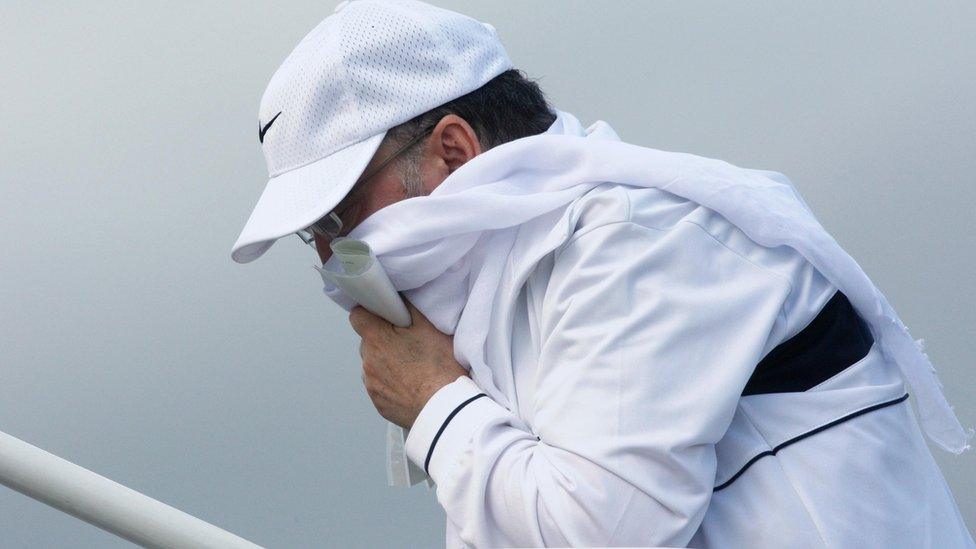Lockerbie bombing: Court hears third appeal against guilty verdict
- Published
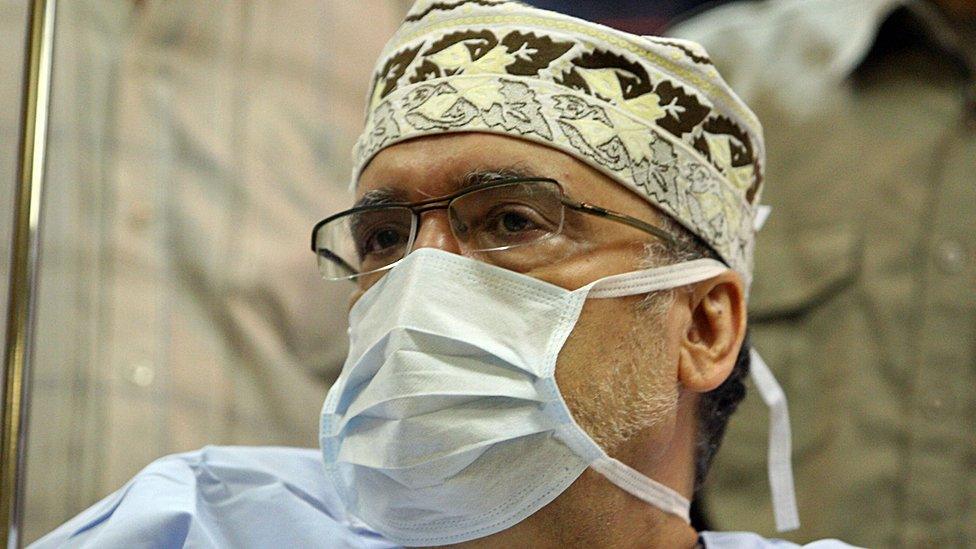
Abdelbaset al-Megrahi died in 2012 but his family pursued the posthumous appeal
A third appeal on behalf of the Libyan man convicted of the 1988 Lockerbie bombing has started at the High Court in Edinburgh.
Abdelbaset al-Megrahi's family want it to rule that he was the victim of a miscarriage of justice.
He was found guilty in 2001 after standing trial at a specially-convened Scottish court in the Netherlands.
He died in 2012 but his family launched a bid for the posthumous appeal which is now being heard by five judges.
On the opening day, lawyers acting for the family questioned aspects of the original judgement, including the acceptance of evidence from a shopkeeper in Malta.
He said that Megrahi bought clothes from him, fragments of which were linked with the suitcase which contained the bomb.
Questions raised
Claire Mitchell QC said the trial court had accepted him as an entirely credible witness.
However, she raised questions about some of his evidence, including the date when the purchase of clothing happened and how the bomb might have been put onto a flight from Malta, connecting with Pan Am flight 103 which exploded over Lockerbie.
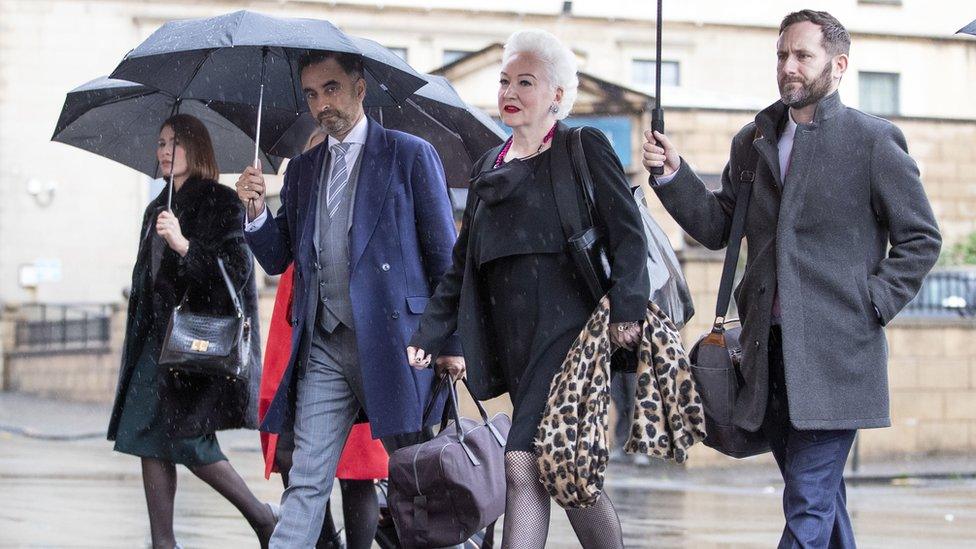
The case is expected to last for several days at the High Court in Edinburgh
Ms Mitchell said the trial court had read into a mass of conflicting evidence a conclusion which was not justified.
The appeal is being conducted via video link and is expected to last several days with a decision to be delivered at a later date.
Megrahi was convicted of the bombing of Pan Am 103 on 21 December 1988.
All 259 passengers and crew on board the flight were killed, along with 11 people in Lockerbie who died when the wreckage fell onto their homes.
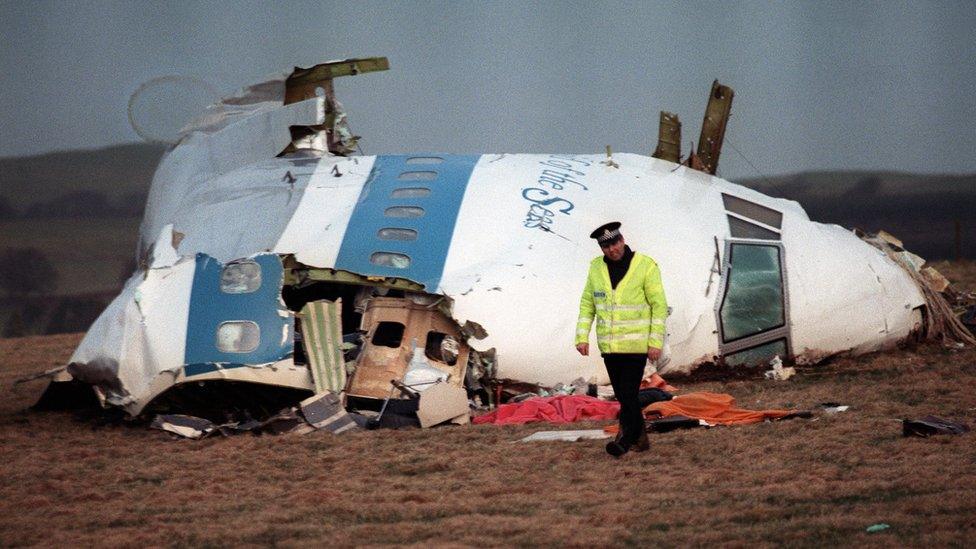
A total of 270 people died in the Lockerbie bombing in 1988
After his conviction in 2001, Megrahi lost a first appeal the following year.
He abandoned a second shortly before the Scottish government released him from prison on compassionate grounds in 2009.
Terminally ill with cancer, he returned to Libya and died there three years later.
However, his family continued their efforts to ensure a further appeal against his conviction.
The Scottish Criminal Cases Review Commission referred his the case back to the courts in March this year.
Three judges, led by Scotland's most senior judge, the Lord Justice General Lord Carloway, then gave the case the authority to proceed.

How did we get here?
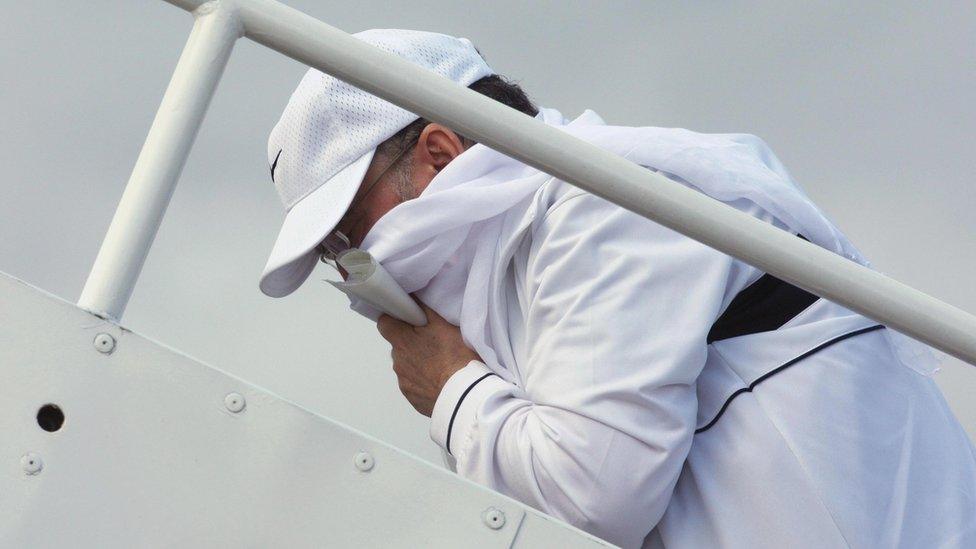
Megrahi was released from prison in 2009 on compassionate grounds
US and British investigators indicted Megrahi in 1991 but he was not handed over by the Libyans until April 1999.
May 2000 - A special trial under Scots law starts on neutral ground at Camp Zeist in the Netherlands.
31 January 2001 - Former Libyan intelligence officer Megrahi is found guilty of mass murder and jailed for life with a minimum term of 27 years.
March 2002 - Megrahi loses an appeal against his conviction.
September 2003 - The Scottish Criminal Cases Review Commission (SCCRC) is asked to investigate Megrahi's conviction.
June 2007 - The SCCRC recommends that Megrahi is granted a second appeal against his conviction.
18 August 2009 - Megrahi's move to drop his second appeal is accepted by judges at the High Court in Edinburgh.
20 August 2009 - Megrahi, who has terminal prostate cancer, is released from prison on compassionate grounds, external.
May 2012 - Megrahi dies at his home in Tripoli, aged 60.
July 2015 - Scottish judges rule that relatives of the Lockerbie bombing victims should not be allowed to pursue an appeal on Megrahi's behalf. Courts had previously ruled that only next of kin could proceed with a posthumous application.
July 2017 - Megrahi's family launched a new bid to appeal against his conviction.
March 2020 - The Scottish Criminal Case Review Commission said Megrahi's conviction could be taken to a fresh appeal.
August 2020 - The posthumous appeal is given permission to proceed.
- Published27 August 2020
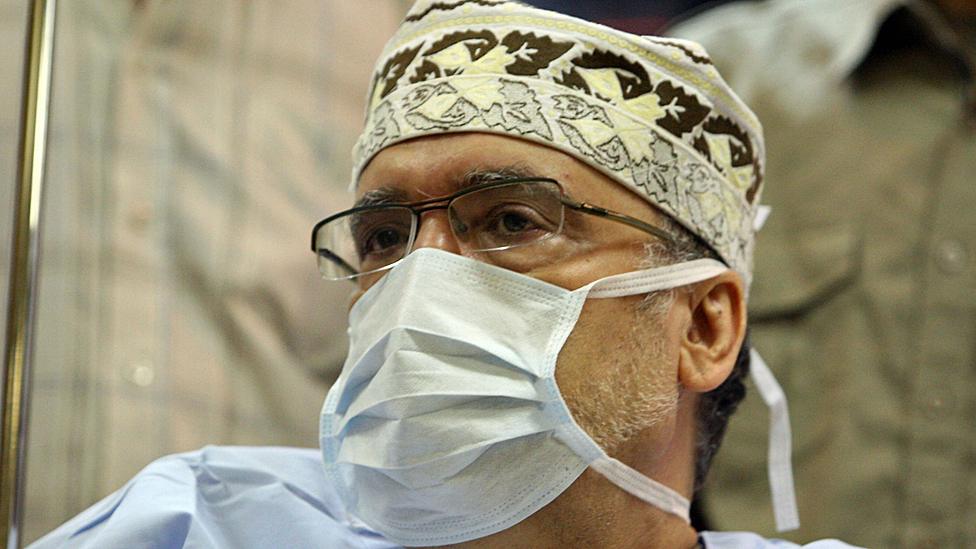
- Published3 May 2018
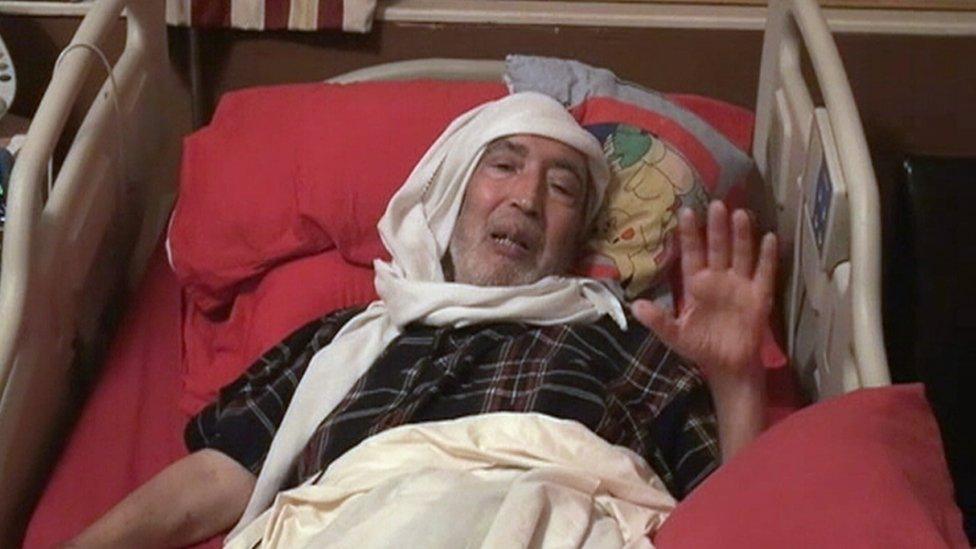
- Published4 July 2017
